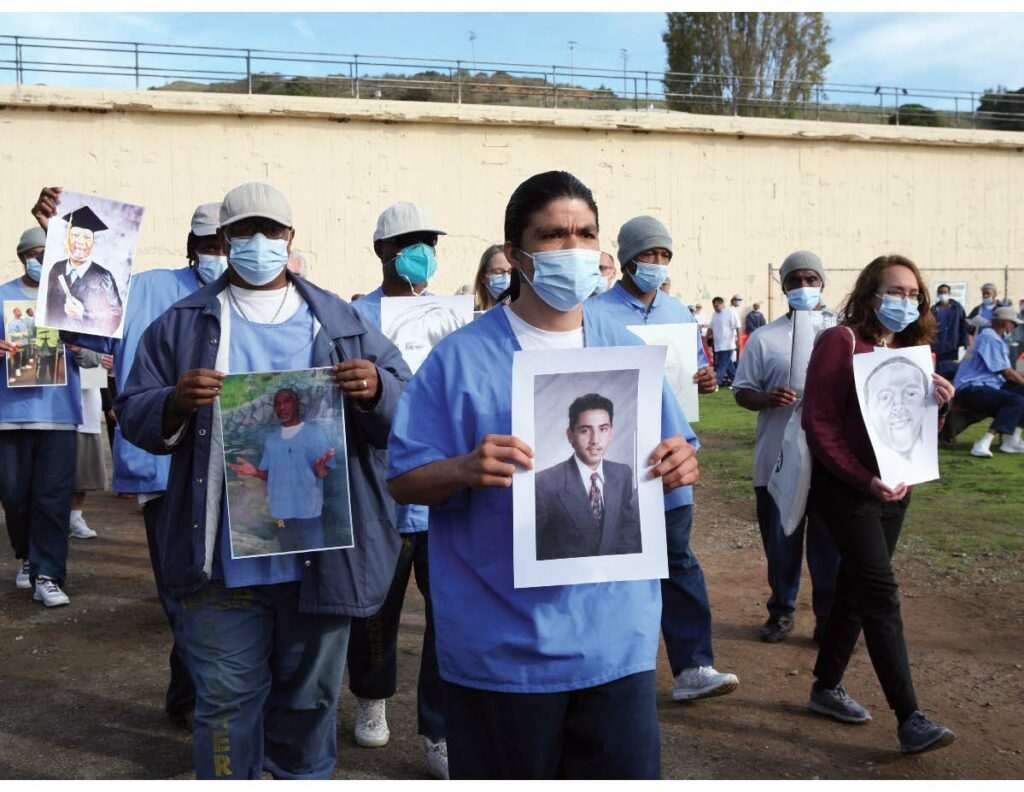
The Ninth Circuit ruled California prison officials acted with “deliberate indifference,” by not taking sufficient precautions or countermeasures during the 2020 Covid outbreak, reported the Courthouse News Service. The decision allows the State and San Quentin State Prison officials to face liability for the Covid outbreak where 29 persons died and infected over 2,000 San Quentin community members.
Former resident, Michael Hampton died during the outbreak. His widow filed a lawsuit claiming prison officials exposed him to Covid, violating her husband’s constitutional rights.
The three judge’s ruling allows widowed Hampton’s Eighth Amendment claim to proceed. Mrs. Hampton, “adequately alleged that defendants acted with deliberate indifference to the health and safety of San Quentin inmates, including Hampton,” said the panel, according to the article.
The case was spurned by CDCR’s transfer of 122 medical-high-risk residents from California’s Institution for Men in Chino. The “Chino transfers” became the catalyst for San Quentin’s Covid outbreak.
Most of the Chino transfers received no testing or screening for Covid before boarding buses headed for San Quentin, said the article.
The state’s prison officials requested relief for qualified immunity from liability by arguing for implementation of the Public Readiness and Emergency Preparedness Act (PREP). The act passed in 2005, providing qualified immunity to vaccine manufacturers during public health crises.
In May, Senior U.S. District Judge William Orrick III denied the state’s request for immunity. The Ninth Circuit panel affirmed Orrick’s decision On October 3, 2023.
Judges Michelle Friedland, a Barack Obama appointee, Mark Bennett, a Donald Trump appointee, and Richard Bennett, a George W. Bush appointee opined, “We affirm the district court’s conclusion…officials are not entitled to immunity under federal law for the claimed violation… and we lack jurisdiction to consider whether the officials are entitled to immunity under state law.”
The panel said the PREP Act doesn’t shield prison officials because they “failed to administer a ‘covered countermeasure,’ such as vaccines, medication, devices, or other measures used to prevent, diagnose, or treat a public health emergency or a security threat.”
The panel determined the issue concerns the right to freedom from exposure to a serious disease. The panel cited Helling v. McKinney, a 1993 decision by the U.S. Supreme Court.
In re: Helling, the Supreme Court ruled incarcerated possess rights to sue to prove Eighth Amendment violations if prison officials acted with deliberate indifference.
Judge Friedland stated, “All had been briefed on the dangers of Covid, [it’s] highly transmissible nature…, the necessity of …taking precautions to prevent its spread. Defendants were also aware that containing an outbreak at San Quentin would be particularly difficult due to its tight quarters, antiquated design, and poor ventilation.”
“All reasonable prison officials…on notice in 2020…that they could be held liable for exposing inmates to a serious disease, including a serious communicable disease,” Friedland wrote.
The article stated San Quentin officials maintained they had no adequate options to protect the incarcerated community from exposure. They responded that any decision they made could endanger inmates.
“Defendants’ argument fails because it rests on a premise contrary to the complaint’s allegations. Plaintiff does not challenge defendants’ decision to transfer inmates out of CIM.
“Rather, plaintiff challenges decisions that defendants made in carrying out the transfer that increased the risk to San Quentin inmates without decreasing the risk to the transferred inmates,” Friedland wrote.
Patrick Baylis, one of Michael Hampton’s best friends, said, “All of us have leave scars for the rest of our lives. Who knows the years we lost to Post Acute Covid Syndrome, but it’s right that Mrs. Hampton and all survivors’ families are compensated.”
The case returns to Orrick’s court as survivors of 29 men who died await the outcome.